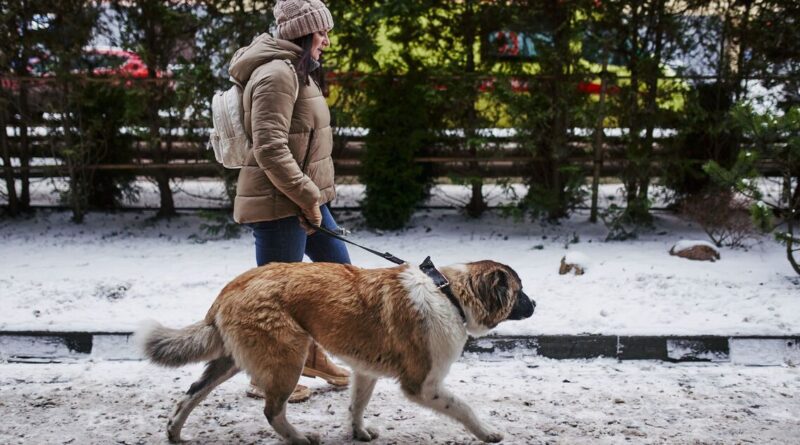Vets share 4 crucial things to do to keep pet safe during darker months
A Glasgow-based veterinary practice has sjared four crucial tips for pet owners, as well as the general public, to keep in mind as the colder, darker winter months come closer, including advice on how to keep pets safe during winter walks.
It’s well known that most dogs require daily walks, and many pet owners understand that weather conditions significantly influence where and how these walks take place.
While it’s common sense to avoid walking your pets in the height of summer heat, there are also certain precautions necessary during the winter months to ensure your pets’ safety and health.
The animal health experts at Glasgow Pet Emergency Hospital have taken to social media to share their top four tips on maintaining the happiness and health of your pets, and all other animals in your area, as the days grow shorter and temperatures start to drop.
They went on to share their list on TikTok, and is urging everyone, not just pet owners, to keep them in mind.
1. Keep pets on a lead or invest in a reflective collar
Veterinary surgeon Ana Marques kicked off the video by advising pet owners to keep their pets on a lead during walks and to consider purchasing a reflective collar if needed.
“One tip that I would give pet owners during the cold and darker months is to keep your pet on a lead, or use a reflective collar, just because they tend to go out of sight and be more prone to injuries and when you can’t see them or supervise them,” she elaborated.
2. Be cautious of chemical solutions
A second vet has urged pet owners to be mindful of where they store chemical solutions, such as anti-freeze products commonly used on cars. She explained that some animals, particularly cats, find these chemicals appealing and intriguing, but if ingested, it could prove fatal.
Cats Protection has warned that even the smallest amount of antifreeze can be lethal to your cat. Once consumed, the ethylene glycol in the product is quickly absorbed into the body, causing severe damage to the kidneys, nervous system and other vital organs.
It’s imperative that your cat receives immediate medical attention if there’s a chance they’ve consumed antifreeze and are showing signs of poisoning.
“So please, keep everything sealed and out of the way,” she implored viewers.
3. Look out for cats in unusual places
“One tip I would give to the general public and pet owners during the colder, darker months to help keep animals safe would be to check for cats seeking shelter for heat and warmth in unusual areas,” a third vet advised.
She added that the colder weather often leads to cats seeking warmth in smaller spaces they wouldn’t normally inhabit, such as garden sheds, garages, and even under the wheel arches of cars and other vehicles.
“So make sure you’re checking these areas. Be sure you’re checking sheds before you lock doors, garages before you shut them over at night time, and checking those wheel arches to make sure there’s no furry friends hiding in there before you drive off,” she urged people.
4. Avoid walking on salted pavements
“So, one thing I would advice pet owners doing in the winter months would be to be aware of when pavements are salted,” he said.
Whilst it might seem odd to avoid the salt, which has been scattered on the pavement to stop people from slipping on the frozen roads, it can actually cause damage for your pets to walk on.
“The salt can act like a bit of an irritant to their sensitive paws, so it can be something that people often forget about,” he explained.





